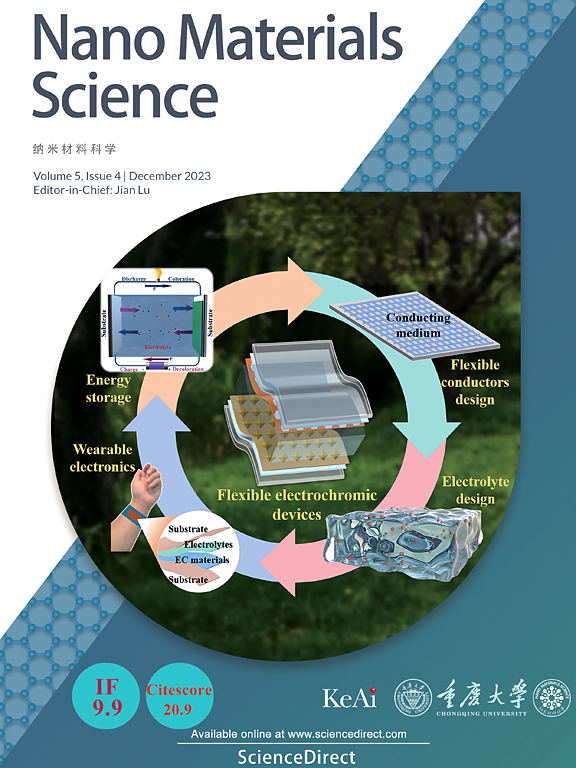Self-charging and long-term face masks leveraging low-cost, biodegradable and sustainable piezoelectric nanofiber membrane
IF 17.9
2区 材料科学
Q1 Engineering
引用次数: 0
Abstract
The mass discarding face masks has caused severe environmental problems during and after the COVID-19 pandemic. To reduce waste and minimize environmental impact, we present a new face mask featuring self-charging extended service time and fully biodegradable materials. To extend the effective service time, we need to supplement the lost electric charge of the electret layer of face masks, for which task we propose to use the piezoelectric effect and generate electricity from breathing motions. However, existing piezoelectric materials are either toxic, impermeable, rigid, costly, or non-degradable. We synthesize a fully biodegradable piezoelectric membrane composed of polyvinyl alcohol (PVA) and glycine (GLY) via the electrospinning process. Parameters are accurately controlled to ensure that glycine crystallizes into a highly piezoelectric β phase during electrospinning and enables piezoelectric responses of the filter membrane. Tested with the standard 0.3 particles, face masks made of the PVA-GLY membrane show an outstanding filtration efficiency of 97%, which remains stable over at least 10 h of high-concentration continuous filtration. Furthermore, we demonstrated the biodegradability of PVA-GLY masks, which can degrade completely within a few weeks, compared to commonly used surgical masks requiring over thirty years to be decomposed.
利用低成本、可生物降解和可持续压电纳米纤维膜的自充电和长期面罩
疫情期间和疫情后,口罩的大量丢弃造成了严重的环境问题。为了减少浪费,减少对环境的影响,我们提出了一种新的面膜,具有自充电延长使用时间和完全可生物降解的材料。为了延长口罩的有效使用时间,我们需要补充口罩驻极体层丢失的电荷,为此我们提出利用压电效应,通过呼吸运动产生电能。然而,现有的压电材料要么有毒、不透水、坚硬、昂贵,要么不可降解。以聚乙烯醇(PVA)和甘氨酸(GLY)为原料,采用静电纺丝法合成了一种完全可生物降解的压电膜。精确控制参数,以确保甘氨酸在静电纺丝过程中结晶成高压电β相,并使过滤膜产生压电响应。PVA-GLY膜制备的口罩在标准0.3 μm颗粒下的过滤效率为97%,在高浓度连续过滤至少10小时内保持稳定。此外,我们证明了PVA-GLY口罩的生物降解性,与通常使用的外科口罩需要30多年才能分解相比,PVA-GLY口罩可以在几周内完全降解。
本文章由计算机程序翻译,如有差异,请以英文原文为准。
求助全文
约1分钟内获得全文
求助全文
来源期刊

Nano Materials Science
Engineering-Mechanics of Materials
CiteScore
20.90
自引率
3.00%
发文量
294
审稿时长
9 weeks
期刊介绍:
Nano Materials Science (NMS) is an international and interdisciplinary, open access, scholarly journal. NMS publishes peer-reviewed original articles and reviews on nanoscale material science and nanometer devices, with topics encompassing preparation and processing; high-throughput characterization; material performance evaluation and application of material characteristics such as the microstructure and properties of one-dimensional, two-dimensional, and three-dimensional nanostructured and nanofunctional materials; design, preparation, and processing techniques; and performance evaluation technology and nanometer device applications.
 求助内容:
求助内容: 应助结果提醒方式:
应助结果提醒方式:


